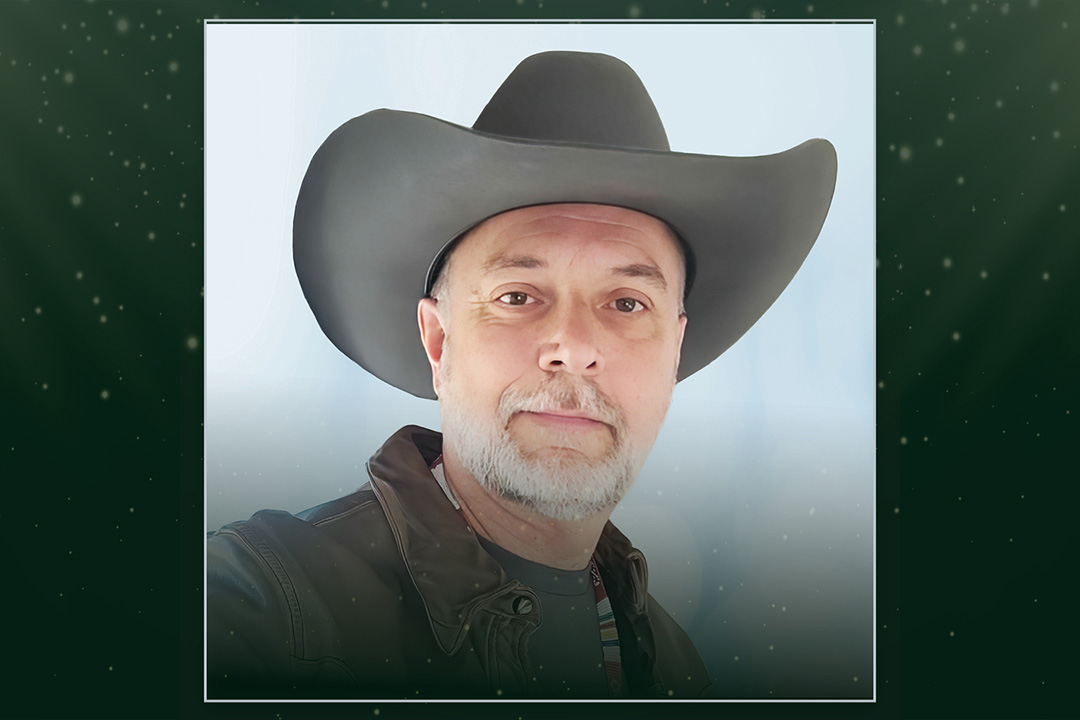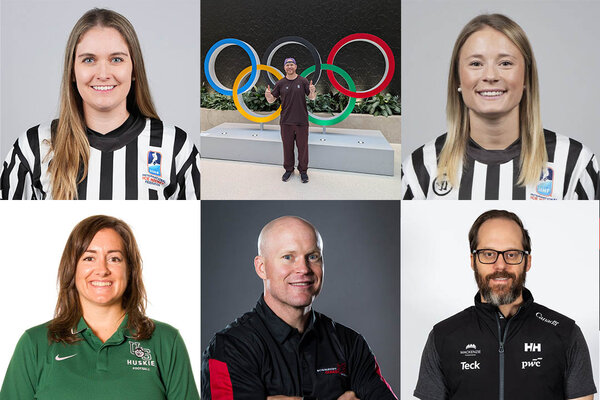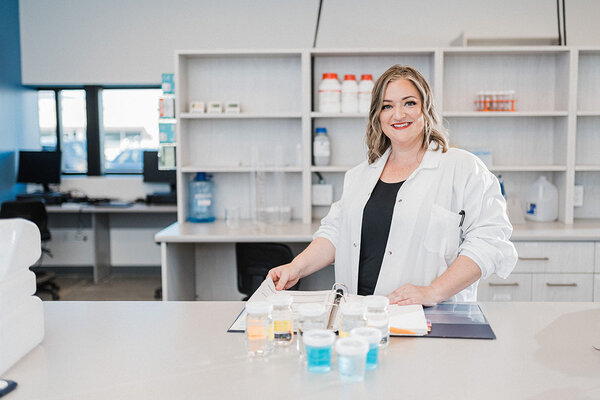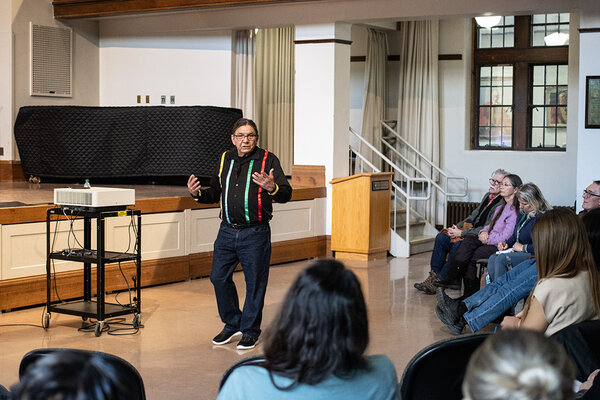
Three questions with Métis energy sector expert Peter McPherson
Arts and Science graduate Peter McPherson (BA’91) discusses how human geography laid the groundwork for success
Building strong relationships has always been the foundation of Métis energy sector expert Peter McPherson’s (BA’91) career.
His dedication to empowering Indigenous communities and fostering strong community relationships is why McPherson is one of five recipients of a 2025 Alumni of Influence Award from the College of Arts and Science.
A respected member of the Métis Nation of Alberta, McPherson graduated from the University of Saskatchewan (USask) in 1991 with his Bachelor of Arts in geography.
He has worked extensively in Western Canada’s energy and resources sector, working with Indigenous communities to advocate for their interests in energy projects that impact them.
He was a co-chair for the Reconciliation Action Team with the Calgary Alliance for the Common Good and served as president of the Métis Nations of Alberta Local 87 Calgary. He is currently a board member of the Aboriginal Friendship Centre Calgary and an elected district councillor with Otipemisiwak Métis Government Calgary Elbow Métis District 6.
The College of Arts and Science asked McPherson a series of questions about his experience at USask and his advice for current students. This interview has been edited for length and clarity.
Q: What is your favourite memory about your time in Arts and Science?
One of my most cherished memories—and one that still comes up in conversation—is from 1989, when I was a third-year human geography student. We had a field camp in Kananaskis, Alberta, where both human and physical geography students came together for a week in the mountains.
What made it unforgettable wasn’t just the location or the learning—it was the relationships we built. That week was all about camaraderie: sharing meals, swapping stories, and learning from one another across disciplines. Despite our different academic focuses, we connected deeply through those shared experiences. To this day, I still keep in touch with several people from that trip.
Those bonds didn’t just make the field camp special; they laid the foundation for everything that followed. Having a network of peers to lean on through third and fourth year made a real difference. And throughout my education and career, relationships have remained at the heart of every step I’ve taken.
We even had T-shirts made to commemorate climbing Mount Baldy—it was more than just a hike; it was a symbol of what we accomplished together. That trip wasn’t just epic—it was transformative.
Q: How did your Arts and Science education help you in your career?
I came into Arts and Science as a mature student, having already earned a college diploma in business administration and marketing from Saskatchewan Technical Institute in Moose Jaw, SK. That was my first step into post-secondary education, but it was at the University of Saskatchewan where I truly found my direction.
One night school course in human geography changed everything. The textbook—Human Geography: People, Place and Culture—captured my imagination. It wasn’t just about geography; it was about people, land, and the ways we connect. That course gave me a deeper appreciation for shared human experiences across cultures and backgrounds, and it laid the foundation for how I see the world.
After completing my undergrad, I wasn’t sure what path to take. But a professor encouraged me to pursue GIS mapping in Burnaby, B.C., a cutting-edge field at the time. That leap into geographic information systems launched my career, which has spanned over 25 years across government, industry, and now Indigenous economic development. What drew me to GIS was its power to turn data into insight—helping people make informed decisions about land, resources, and communities. Yet even as I worked with advanced mapping technologies, I came to appreciate that Indigenous peoples have always known the land—not through satellites or software, but through generations of lived experience, observation, and stewardship. Today, my work is about bridging those worlds: using data to support decisions, while respecting and elevating the deep knowledge that’s already there.
Throughout it all, the most valuable lesson from Arts and Science has been the importance of relationships. Whether managing data for large-scale projects or working with Métis and First Nations communities to connect opportunities, it’s always come back to understanding people—their movements, interests, and stories.
That human geography foundation gave me more than technical skills; it gave me a way to build meaningful connections. It helped me discover not just a career, but a purpose rooted in empathy, collaboration, and community.
Q: What advice would you offer to current students in Arts and Science?
Sometimes I think we’ve become so focused on what a career is supposed to look like that we forget how to think outside the box. But a career isn’t a fixed path, it’s something you shape for yourself. It’s about being open to new perspectives, exploring different directions, and trusting that your journey doesn’t have to follow a straight line.
A few years ago, I volunteered in the U of S alumni mentor program and was paired with a PhD student in Health Sciences. At first, I wasn’t sure how we’d connect—me being a geographer and mapper. But through our conversations, we found common ground. I was working with an Indigenous community at the time, and I suggested she consider how her research could support Indigenous health initiatives. That idea hadn’t occurred to her, but it opened up a whole new direction for her work.
That experience reminded me of the power of being open—to conversations, to collaboration, and to unexpected opportunities. Especially when you’re young, give yourself permission to explore. You have time to figure things out, and sometimes the most meaningful paths are the ones you didn’t plan for.
And if you ever find yourself stuck or unhappy in your work, don’t ignore it. You have the power to make a change. Staying in a role that doesn’t fulfill you doesn’t serve anyone, not your family, not your employer. So as daunting as it might feel, take the leap. Be the change. Life is too short to settle for anything less than purpose and joy.
The Alumni of Influence Awards celebrate and recognize outstanding alumni of the College of Arts and Science. The recipients’ remarkable achievements have impacted their fields, their communities and the university.
If you know a College of Arts and Science graduate who is making a difference, submit a nomination. Nominations can be made at any time of the year.


